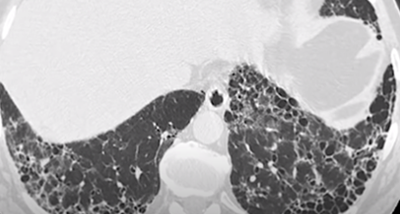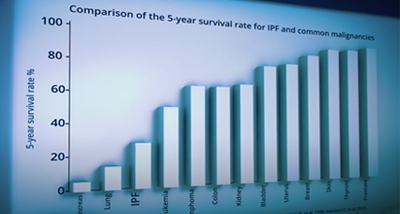Idiopathic pulmonary fibrosis (IPF) is a chronic, relentless, and ultimately fatal disorder characterized by progressive scarring (fibrosis) of the lung parenchyma. IPF is marked by excessive inflammation and lung scarring that makes it difficult for patients to breathe. This is due to fibroblast maturation into myofibroblasts — the main cellular drivers of lung fibrosis that produce excessive amounts of extracellular matrix(ECM) molecules.
The median survival for IPF patients is 3~4 years from diagnosis. The overall prevalence of IPF worldwide ranges from 8.3-55.1 per 100,000. Recent studies suggest that both the prevalence of, and mortality from, IPF are increasing. It is currently estimated that about 3 million to 5 million adults worldwide have IPF.
The disease has yet to be cured. In fact it has been extremely difficult to even treat effectively. To date, Boehringer Ingelheim’s Ofev and Genentech’s Esbriet are the only anti-fibrotic therapies approved for IPF. Both have been shown to lessen lung fibrosis and slow IPF progression. However, responses are variable and side effects are common with both medications. There is an urgent need for better drugs, and more effective therapies, that safely modify the course of IPF and restore quality of life to patients.
The IPF market will rise substantially from just over $900 million in 2015 to $3.2 billion by 2025, representing an impressive compound annual growth rate (CAGR) of 13.6%.



